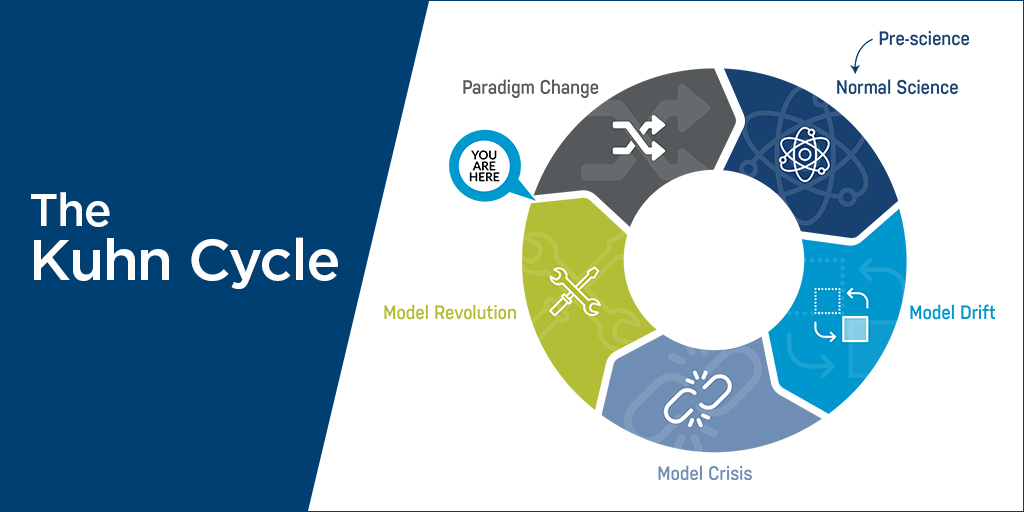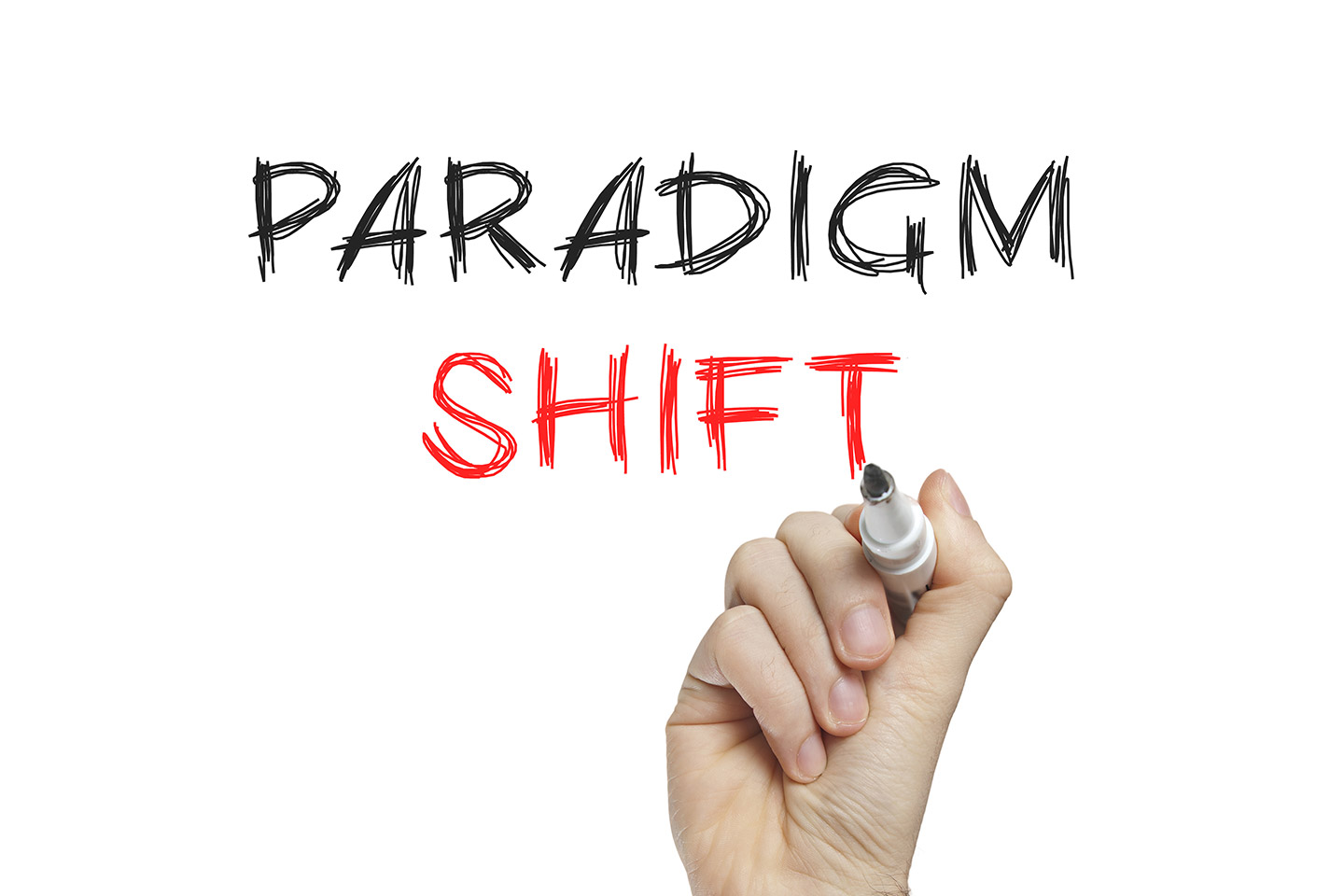- A paradigm shift is a fundamental change in approach or underlining assumptions. For example, when Pythagoras proposed that the Earth was round instead of flat, the foundation of science and people’s understanding of the world was completely changed.
- Shift The term 'paradigm shift' implies not only a deep change in an external state of affairs but a change of consciousness. Integrating diversity in the workplace, while it may seem straightforward, involves a paradigm shift because of the nature of racism, sexism, and all other prejudices.


A paradigm shift is a major change in the concepts and practices of how something works or is accomplished. A paradigm shift very often happens when new technology is introduced that radically. Thomas Kuhn introduced the term “paradigm shift” to describe major scientific breakthroughs in his book, The Structure of Scientific Revolutions. Think about how these paradigm shifts in history, and how they hav shaped all areas of life. Creating a paradigm shift is simply an awareness issue. Once you recognize that you have a paradigm in place, you have the power to change it. You have paradigms in place in all areas of your life maybe without even knowing it.
The concept of a ‘Paradigm Shift’ was created by philosopher Thomas Kuhn. Cambridge Dictionary defines the term as “a time when the usual and accepted way of doing or thinking about something changes completely.” With this information known, what classifies as a Paradigm Shift?
Historically the term refers to scientific theologies that have become outdated and replaced with new, better theories. An example of this could be the concept of a flat earth. Artboard for mac. The Greek philosopher, Aristotle was the first to propose an observation that the earth was round. However, this theory did not publicly replace the original paradigm theory until Ferdinand Magellan sailed around the world in 1519. This fundamental change in scientific theories proves a Paradigm Shift has taken place.
In recent times, Paradigm Shifts have been associated with sociological changes amongst generations. Jean M. Twenge’s article, “Have Smartphones Destroyed a Generation?” is a great example of a modern-day Paradigm Shift.

Pro model for mac. Image by Jasu Hu
The article poses a series of questions that develop a theory that the younger generation’s reliance on cellphones relates to a major societal shift from previous eras. In general, paradigm shifts are created by the young. The changes in ideas usually take the lifetime of a generation. These two characteristics can be found in Twenge’s article. The writing states:
Paradigm Shift Examples In Life
At first I presumed these might be blips, but the trends persisted, across several years and a series of national surveys. The changes weren’t just in degree but in kind. The biggest difference between the Millennials and their predecessors was in how they viewed the world; teens today differ from the Millennials not just in their views but in how they spend their time. The experiences they have every day are radically different from those of the generation that came of age just a few years before them (Twenge).
Paradigm Shift In History
In this quotation, the usage of the word ‘radical’ provides a clear understanding of the severe change the younger generation is facing. The lapse in time and the cause of the change being related to the young, proves that a paradigm shift has taken place.
The Next Paradigm Shift Scam
The Paradigm Shift described in Twenge’s article relates to the drastic downward trend of teens’ mental health with the increased usage of smartphones. This new theory, that smartphones cause mental illnesses, has a wide array of supporting evidence. Therefore, it debunks the prior paradigm theory causing a Paradigm Shift.
